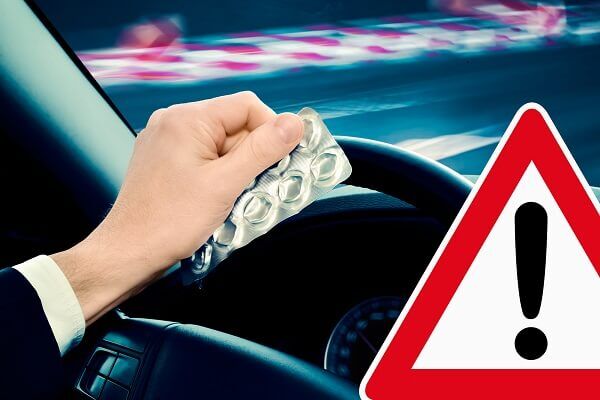
Free Consultation(203) 447-0000

Free Consultation(203) 447-0000

These days, most motorists are aware of the dangers of driving while drowsy. You see the news discuss recent accidents, and you know from the awareness campaigns how a sleepless night affects your driving abilities. Despite all the awareness, drowsy driving is still a big concern in the United States.
Unfortunately, it is impossible to put a real number on how many drowsy drivers cause accidents because these numbers are grossly underestimated. Self-reporting is unreliable in these cases, and law enforcement has no way to test whether a driver is tired. Therefore, the numbers are pure estimates or based on those drivers who admitted to falling asleep at the wheel.
To bring further awareness, the National Sleep Foundation has their annual National Sleep Awareness Month every March. Due to the Daylight Savings Time that comes in March, the foundation wants people to know how missing just one hour of sleep can affect them, and what they can do to improve their rest each night.
If a drowsy driver has injured you or a loved one, you may wonder if you can sue that driver. Technically, you can file a lawsuit against a drowsy driver. However, proving that they were asleep at the wheel might be more difficult than initially thought. You can still speak with an attorney. An attorney that has experience with these types of cases can investigate the accident and help prove your case.
While you might think missing one hour of sleep is nothing to worry about, the National Highway Traffic Safety Administration estimates that a minimum of 80,000 accidents each year happen because drivers are too tired. They also expect that those drowsy drivers killed 846 people in 2014. Therefore, if you find yourself nodding off or having difficulty paying attention to the road, it might be time to pull over and get in a nap.
When you miss just one hour of sleep, you might feel like you can continue your day as usual. You may not feel tired or you might even assume an extra cup of coffee will do the trick. However, this is what just one missed hour of sleep can do to your drive the next day:
You could feel alert and fine, but how are you feeling emotionally when you miss an hour or two of sleep the night before? Time changes can impact your emotions, which can negatively affect your driving. Depression might occur because you are too tired, or you may become quickly enraged and agitated at things that would not ordinarily bother you.
Some ways that a lack of sleep affects your emotions (and driving) include:
It is not easy to prove that the motorist who caused your accident was asleep at the time. Furthermore, finding evidence about where they were for the day, whether they slept, or if they have a job that is likely to keep them awake for hours at a time is more complicated. Most of the time proving someone was not awake at the time is based on circumstantial evidence, which may or may not swing the jury in your favor.
For example, the police report determines that the at-fault vehicle swerved out of their lane and crashed into your car. The driver did not use the brakes, nor did they signal. Therefore, the accident recreation specialist might say that the driver was not paying attention or asleep. To rule out that they were not distracted, your attorney looks at cell phone records. The records show no use at the time. Therefore, you might safely assume that the driver fell asleep. However, this is an assumption, and you have no factual evidence.
One way you may be able to prove the driver was asleep is if they take a prescription medication that causes drowsiness. Your attorney will review the defendant’s medical records and may request information about prescriptions that the driver was taking. If any of those medications are prescribed and meant to be taken around the time they drive but also cause drowsiness, you may be able to use that as evidence that the driver fell asleep at the wheel.
A typical crash caused by a driver that is asleep at the wheel may display specific characteristics, including:
Even if you cannot prove that the driver was asleep, you can still seek damages just by proving that standard liability applies to your case.
Using the standard liability in a motor vehicle accident, you could prove that the driver was at fault for causing the crash, regardless of if they fell asleep or not. This is done by showing that the driver breached his or her duty of care. Regardless of if they were asleep or awake, a driver must obey the rules of the road and do what they can to avoid an accident. Therefore, if a driver swerves into your lane while you have the right of way, and they cause an accident, they have breached their duty of care.
From there, it is connecting the dots. Your attorney would connect that breach of duty to your accident, show the accident caused your injuries, and prove the injuries correlate with the damages you are requesting in your claim.
In a civil case, the plaintiff (the victim) must show that the defendant was at fault for the accident by using a preponderance of the evidence. Naturally, you want to succeed with your case, but you also need time to recover from your injuries. Therefore, it is in your best interest that you hire an attorney.
An accident attorney has helped countless victims just like you seek compensation for their injuries. More so, they know where to look for evidence, and they know the procedures for civil cases – saving you time and money.
Contact Berkowitz and Hanna, LLC today to schedule a no-obligation consultation for your accident. Call 866-479-7909 or contact us online to get started.
Berkowitz Hanna
